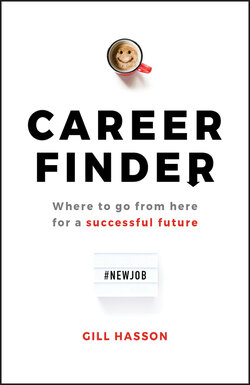Читать книгу Career Finder - Gill Hasson, Gill Hasson - Страница 8
Is it Possible to Find Work and a Career that You Enjoy and Are Happy With?
ОглавлениеHow we spend our days is, of course, how we spend our lives.
Annie Dillard
For many of us, work fills a large part of our lives; the average person spends a quarter of their adult life at work; it's reckoned that we will spend 3,507 days at work over a lifetime.
In her book How to have a Happy Hustle Bec Evans writes: ‘At school when asked what I wanted to be when I grew up, I replied that I wanted to be happy. Not a helpful response for my teacher who was trying to organise my Year 10 work placement.’
Is it realistic to think that you can find work and a career that you enjoy and are happy with? To answer this, it helps to understand what makes for happiness and fulfilment. Over 2,000 years ago, the Greek philosopher Aristotle identified two types of happiness: hedonic happiness and eudaimonic happiness. Hedonic happiness is the small pleasures and eudaimonic happiness refers to happiness that comes from having meaning, purpose, and fulfilment in our lives.
Aristotle suggested that because, as human beings, we have a unique ability think, to rationalize and reason, to make judgements, and come to conclusions, we should – indeed we must – use this ability to work out for ourselves ways to live our lives so that we have a sense of purpose and meaning and that we experience a general, stable sense of well‐being, feel fulfilled and believe that, overall, life is good.
Aristotle acknowledged that, of course, happiness can be affected by external issues – our environment, our health, the actions of other people, etc. – but, he said, by using our ability to think and reason, we are able to create a life for ourselves that enables us to bear the ups and downs with balance and perspective and maintain a general sense of well‐being.
Fast forward 2,000 years and, like Aristotle, today's psychologists and researchers are also interested in what makes for happiness and a good life. Positive Psychology Professor, Martin Seligman, for example, in his book Flourish, also suggests that in order to be happy, as well as small pleasures, connecting with others, and feeling that we belong, we need to have one or more things in our life that mean something and make sense to us, that interest and absorb us, that we want to be involved in and allow us to feel good when we achieve what we set out to do.
Of course, what is meaningful, engaging, and gives a sense of purpose is different for everyone. But for so many of us, because work is such a key part of our lives, it's our work that can provide meaning, engagement, and a sense of purpose. Or, to look at it another way; it's because much of our time is spent at work that it needs to be meaningful, engage us, and provide a sense of purpose.
